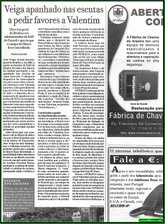“WE HAVE shown we are up to the challenge. We are capable of acting.” Such were the bullish words of Angela Merkel tonight, after a nine-hour summit of euro zone leaders agreed a new €109 billion bail-out for Greece, and approved the creation of new tools to fight market contagion around the euro zone (the communique is here PDF).
Much of the attention in recent months has focused on the “involvement” of private creditors—nobody wants to talk of debt “restructuring”—and whether it would be construed as a selective default by credit-rating agencies.
But the most certain and immediate restructuring is not of the loans by the private sector, but of those by official lenders from the euro area. The interest on the euro-zone’s portion of the future Greek bailout is being reduced from about 5.5% to about 3.5%. Greece, then, is being allowed to borrow money as cheaply as an AAA-rate country. Moreover, the maturity on current and future loans would be extended from 7.5 years to a minimum of 15, perhaps even 30 years. Were such terms applied to private lenders, credit-rating agencies would have no doubt about calling it, at the very least, a selective default.
All this is meant to “decisively improve the debt sustainability and refinancing profile of Greece”. Number-crunchers say the effect will be noticeable, but not dramatic. At the end of its rescue programme in 2014, Greek debt will still be worryingly high, they say. What the IMF is most excited about is the commitment “to continue to provide support to countries under programmes until they have regained market access, provided they successfully implement those programmes”. In other words, the EU appears to have given Greece, Ireland and Portugal – and any other country that may need to be bailed out – an indefinite commitment of financial support.
This promise may well be tested when the current Greek programme ends in 2014. Will euro area countries really be willing to provide fresh funds if Greece is still unable to borrow in the bond markets?
In order to address the threat of contagion, the leaders decided that the main bail-out fund, the European Financial Stability Facility (EFSF), would be made more flexible so that it could fight smaller fires before they became uncontrolled blazes. It would be able to extend short-term lines of credit, recapitalise banks and buy the bonds of vulnerable countries on the secondary market. Many thought the EFSF would need a lot more money to perform these functions credibly, but such calls were rejected.
Better late than never. Many of these measures were proposed months ago and rejected by Germany and the Netherlands.
Still, for Nicolas Sarkozy, the French president, this is all a big step towards the creation of a “European Monetary Fund” and, indeed, of a European "economic government". He said there would soon be more proposals to integrate economic policies of the 17 euro area states. He relished the idea of creating a two-speed Europe; agreement at 17 was hard enough, he said; striking a deal with 27 leaders would have been nigh impossible (Britain, too, seems resigned to remaining in the EU’s outer ring. For more on this, see Bagehot’s Notebook).
And what of the private creditors? The initial mood of relief, even euphoria, that the euro zone had finally done something big to reverse the crisis soon gave way to confusion over the precise scale and nature of the involvement of the financiers. The communiqué said the net contribution of the private sector is about €37 billion, but the figures provided by the banks, EU officials and national delegations are inconsistent.
The question of “private-sector involvement”—now called PSI—has been the subject of a long arm-wrestling match between Berlin and Frankfurt. To satisfy Jean-Claude Trichet, president of the European Central Bank, any involvement by private creditors had to be “voluntary”; to satisfy the political needs of Angela Merkel, the German chancellor, (and others) it had to be “substantial” (see my previous post here and here).
The rest of Europe held its breath as the clenched hands swayed one way and then the other. Meanwhile, contagion has continued to spread through the euro zone.
According to the French satirical weekly, Le Canard enchaîné, President Sarkozy privately vented his frustration with both Mrs Merkel and Mr Trichet. The Greeks were doing the best they could, he said. But the Germans were displaying “criminal” egotism while Mr Trichet had taken up an “extremist” position. “Trichet’s strategy is one of Belgian roulette,” Mr Sarkozy is quoted as saying, “In Russian roulette there is one bullet in the cylinder. In Belgian roulette the whole cylinder is loaded with bullets.”
All ideas for PSI proposed in recent weeks—rolling over maturing bonds (a French idea), swapping bonds of new ones with longer maturities (the German preference) or buying back bonds on the secondary market—seemed to collide, in one way or another, with the ECB’s demand that there should be “no selective default”.
So in the end the decision was to offer creditors a choice of all three, as if a selection of unpalatable options would appear like a choice made freely. A French idea of taking the money from the bankers’ other pocket, by directly taxing the assets of European banks, lasted only a few days. But one senior French source said the threat had helped convince the bankers to contribute substantially. Sweeteners from governments helped too: roll-overs and swaps would be backed by AAA-rated collateral (presumably bonds provided by official lenders) to make them more appealing. Along with the debt buy-back, the Greek debt ratio, currently about 160% of GDP, might come down by about 12% of GDP.
For all their dissembling about the voluntary nature of the creditor involvement, euro-zone leaders are bracing themselves for these arrangements to be declared a “selective default” by rating agencies. That is why they pledged an additional €20 billion to recapitalise Greek banks, and €35 billion to put up collateral for the ECB to keep providing liquidity to the Greek banks. Adding the €20 billion of funds committed to buy back Greek bonds, this could be an expensive way of extracting a contribution from creditors.
It was probably out of realisation of the trouble caused by the demand for PSI that the leaders more or less promised not to make a habit of trying to make creditors pay. Greece, they said, was an exceptional case; all other countries solemnly pledged to honour their debts.
Had Mr Trichet given his approval for all this, as some leaders suggested? That would be too hopeful, but at least the ECB president no longer voiced his objections. He told journalists he had given his advice; it was up to leaders to take or reject it. His words of caution have been rejected in the past, he noted, only to be vindicated by subsequent events. This seems to be a reference to his warning, as far back as October, that leaders should not talk of making creditors pay at a time when markets were jittery (see my recent column).
Mr Trichet, then, may have put down the loaded gun. Now the euro zone's leaders must play Russian roulette with the markets.
* This blog has been somewhat reworked after I posted it in haste, as the summit venue was being closed down.
Read on: More on the emergency euro-zone summit from Schumpeter, Free exchange, and Democracy in America.
(Photo credit: AFP)
No Charlemagne








































































.jpg)









0 comentários:
Enviar um comentário